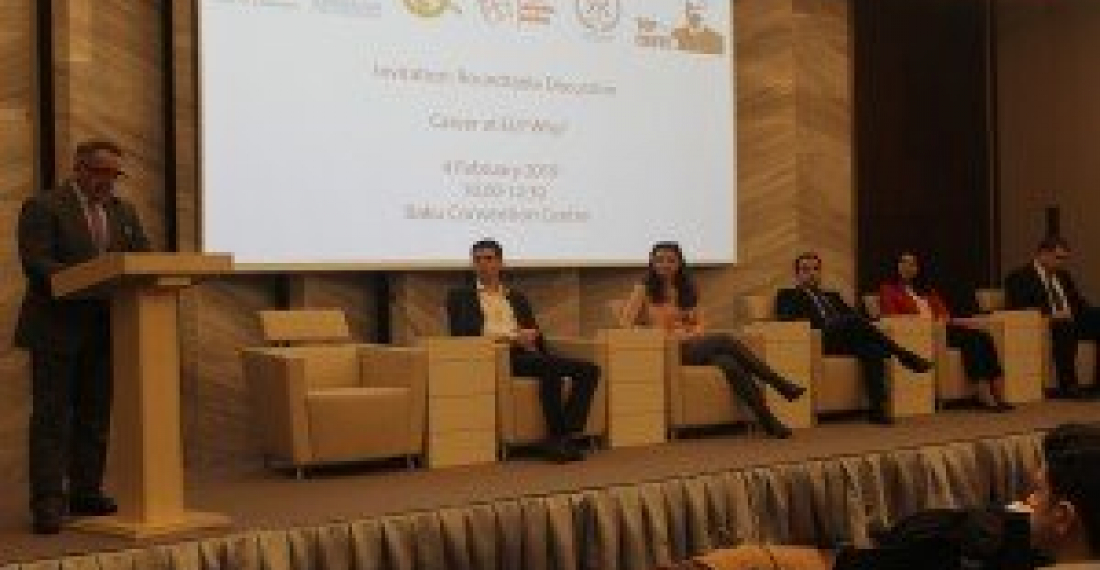A programme to help young people in Azerbaijan understand Europe and its institutions was presented at an event at the Baku Conference Centre on Monday (4 February). The event was co-hosted by the Association of Young Azerbaijani Professionals in Europe (AYAPE) and the think tank Strati. The programme, which is an initiative of the Azerbaijan Youth Foundation, will see 50 young Azerbaijanis travelling to Brussels in 2019 for study visits and internship attachments.
A guest speaker at the event was Denis Naets, Deputy Head of Mission at the Belgian Embassy in Baku, who in a short presentation spoke about Europe's post war experience in reconstruction and how European institutions helped the process of post-war reconciliation. Other speakers included Tarana Hasanova from ADA University, Parviz Baghirov from Erasmus+ National office in Baku, and professor Araz Azanli from the Azerbaijan State Economic University.
A number of alumni from previous similar programmes, including Ahmad Allili and Afaq Nadirli shared their experiences with those present.
At the end of the event, Vusala Niftaliyeva from the Azerbaijan Youth Foundation presented the awards to previous participants of the programme.
source: commonspace.eu with ayape.eu
photo: An event organised by AYAPE and Strati in Baku on 4 February 2019






